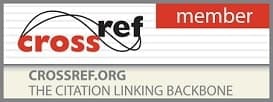- Printed Journal
- Indexed Journal
- Refereed Journal
- Peer Reviewed Journal
P-ISSN: 2394-1685 | E-ISSN: 2394-1693 | CODEN: IJPEJB
Impact Factor (RJIF): 5.38
2017, Vol. 4, Issue 6, Part C
Cold therapy of sporting injury in upper thigh region a comprehensive study on the time required to achieve optimal cooling and the effects of swelling
Author(s): Dr. Ravinra Baliram Khandare
Abstract:
One of the most common injuries amongst athletes is soft tissue injury due to impact, and the traditional treatment for this is cold therapy using an ice pack. While this treatment is effective, inexpensive, and easily accessible, there is very little quantitative data available on the actual effects of ice on the muscle. The most common advice found in medical textbooks and literature is a 20 minute on, 20 minute off icing cycle. In this study we model the temperature distribution in the upper leg region after one and a half cycles of ice therapy. Our ax symmetric model consists of three layers: skin, fat, and muscle, and we include an initial swelling of the muscle layer that decreases as a function of the muscle temperature. After an initial 20 minutes of cooling, the desired temperature change of 10°C penetrated to only 4 mm into the muscle layer, but after a 60 minute cycle, the desired cooling increased to 1 cm. Our sensitivity analysis revealed that slight changes in properties such as density, specific heat and conductivity did not alter the results significantly. Also, using a fixed muscle thickness independent of temperature yielded a lower temperature drop in the muscle layer. It was concluded that ice therapy, though slow, is effective in cooling some of the muscle to the desired temperature, and its main advantages stem from its inexpensiveness and ease of application. One of the most common injuries amongst athletes is soft tissue injury due to impact.
Pages: 134-136 | 1519 Views 129 Downloads
Download Full Article: Click Here

How to cite this article:
Dr. Ravinra Baliram Khandare. Cold therapy of sporting injury in upper thigh region a comprehensive study on the time required to achieve optimal cooling and the effects of swelling. Int J Phys Educ Sports Health 2017;4(6):134-136.








 Research Journals
Research Journals